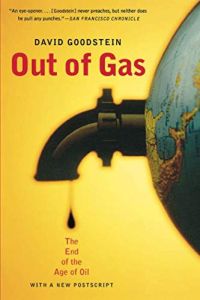Join getAbstract to access the summary!

Join getAbstract to access the summary!
David Goodstein
Out of Gas
The End of the Age Of Oil
W.W. Norton, 2005
What's inside?
Humankind must confront its energy crisis before the oil – and the time – runs out. (Or, do you still have a horse?)
Recommendation
Author David Goodstein says the world’s citizens must face the facts: the end of the age of oil is at hand. Those who argue that the world’s oil supply is sufficient for another 30 or 40 years are missing the point, he says, because the economic effects of the oil shortage will begin long before the last drop is pumped from the ground. Goodstein crafted his book for the educated nonscientist, and he does a masterful job of explaining the complex science behind energy supply and production. Goodstein’s prose is neat, clean and straightforward. His explication has a narrative quality that makes it easily readable, and he adroitly avoids oversimplification. Ultimately, the book is limited by science itself: Goodstein admits that science does not yet know the tipping point for the greenhouse effect, and has not yet determined the optimum mix of alternative power technologies. However, he makes it clear that alternative energy development is a matter of pay for it now or pay for it later. getAbstract.com strongly recommends this book, especially for realists who sense a lot of long gas lines waiting just around the corner.
Summary
About the Author
David Goodstein has written five previous books. He is vice provost and a professor in the California Institute of Technology’s physics department.

















Comment on this summary